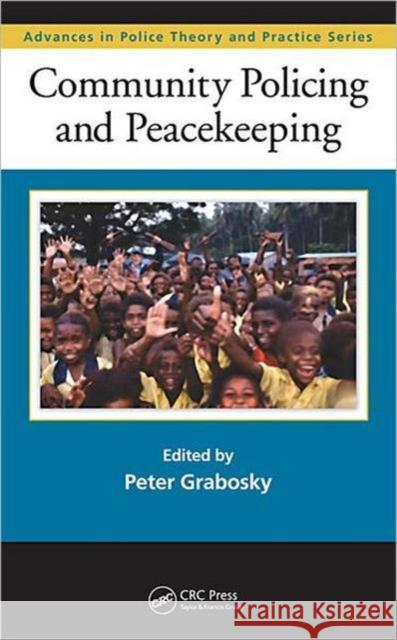Community Policing and Peacekeeping » książka
Community Policing and Peacekeeping
ISBN-13: 9781420099737 / Angielski / Twarda / 2009 / 392 str.
Community Policing and Peacekeeping
ISBN-13: 9781420099737 / Angielski / Twarda / 2009 / 392 str.
(netto: 736,50 VAT: 5%)
Najniższa cena z 30 dni: 705,23
ok. 30 dni roboczych.
Darmowa dostawa!
In modern industrial societies, the demand for policing services frequently exceeds the current and foreseeable availability of public policing resources. Conversely, developing nations often suffer from an inability to provide a basic level of security for their citizens. Community Policing and Peacekeeping offers a fresh overview of the challenges of community policing in advanced societies and peacekeeping in weak nations, demonstrating how going beyond traditional models of police work can provide solutions in troubled communities. Responding to the needs of the community Featuring contributions from world-class scholars, this volume emphasizes the importance of cultural and political sensitivities in police work. Offering comparative perspectives from the United Kingdom, Australia, the United States, South Africa, and China, it explores the paradigm of community policing that involves consultation with community members, responsiveness to their security needs, collective problem-solving to identify the most appropriate means of meeting these needs, and mobilization of police services. Exploring the challenges and pitfalls of these collaborative efforts, the book examines how traditional models of police work have evolved to embrace the needs of communities. Keeping peace at home and abroad The second part of the book focuses on police peacekeeping efforts in countries torn apart by civil strife. It includes chapters on police collaboration with the United Nations, Australian and Canadian efforts abroad, CIVPOL (civilian police peace operations), and programs in Papua New Guinea and Cambodia. The book shows how expanding the role of the police beyond the limits of fighting crime can help contribute to safer, more stable communities.











